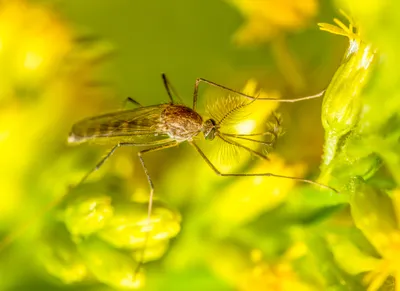If you suffer from asthma, you know all too well that it can be set off at seemingly any time – and can leave you gasping for air to the point you could need emergency medical help.
However, whether you’re aware or not, there are certain factors – both environmental and otherwise – that are setting off your asthma. You may be able to pinpoint some of these triggers and avoid them to reduce your chances of having an asthma attack. Since May has been declared National Asthma and Allergy Awareness Month by the Asthma and Allergy Foundation of America (AAFA), here are seven asthma attack triggers to look out for…
1. Non-Biting Insects
While people can have severe allergic reactions to certain bug bites and stings, those with asthma still have to worry about the bugs that aren’t known for either of those aggressive or defensive behaviors.
The AAFA points out that even seemingly docile insects such as cockroaches and dust mites can trigger an asthma attack, so you obviously won’t want them hanging around your home. These types of insects can cause allergy symptoms such as itchy eyes and runny nose in people without asthma, and these symptoms can last for months at a time.
2. Household Pets
If you already have a dog, cat or rabbit and you’re having a lot of asthma symptoms, then you may need to take a closer look at making sure your furry friends aren’t the cause. “Many types of animals – both pets you have at home and animals you may encounter outside – have been shown to trigger airway inflammation in people who are allergic,” explains Asthma.ca.
One of the major problems with pets is dander, which is actually particles of skin that become airborne. However, the source notes that even an animal’s saliva and bodily oil secretions can be asthma triggers too. Kids with asthma can be especially sensitive to pets – in fact, the source explains up to 50-percent of children with asthma symptoms are triggered by them. These pets can include dogs, mice, gerbils, birds – with cats being “the worst offenders”.
3. Common Cold
While having a cold can make it hard to breathe enough due to blocked nasal passages as well as coughing or sneezing, it can actually lead to asthma attacks, according to the Mayo Clinic. It says any respiratory infections including the common cold can be the culprit.
Having another virus like the flu or sinusitis (swelling of the sinus tissues) can also lead to severe asthma symptoms, so it’s important when you’re sick to take any medically prescribed medications and have your inhaler nearby if you’ve been issued one.
4. Medications
While you should take any prescribed medications for your asthma or illnesses that could complicate your asthma, there are some medications that can actually be a trigger as well, according to the American Academy of Allergy Asthma & Immunology (AAAA).
These medications to watch out for can be over-the-counter drugs like aspirin and ibuprofen, as well as beta-blockers to manage heart conditions and high blood pressure. Also ask your doctor if you’re taking medications for migraine headaches or glaucoma and experiencing worse asthma symptoms.
5. Stress
This is something no one wants much of, although a healthy level of stress is important to motivate you and also to make important decisions. However, when stress gets out of hand and becomes chronic, it can lead to a variety of health problems including – you guessed it – asthma attacks.
WebMD says stress can come from a variety of places such as your workplace or even at home, so it’s hard to avoid. “Stress is part of daily life – with or without asthma. That’s why it’s important to find effective ways to manage stress if you do have the disorder,” notes the source. Relaxation techniques can be helpful to help you regain control over your respiratory challenges.
6. Cigarette Smoke
Smoking is not only harmful for you (especially if you have asthma), but the second-hand smoke can also be a trigger for others with asthma in the home – including kids in particular. “If you hang out with smokers or have a family member who smokes in the house, you are likely to have more frequent and severe asthma symptoms,” notes KidsHealth.org.
The source suggests asking those offending family members to smoke outside, and not in the car where smoke can linger. And it should go without saying that if you have a child that’s experiencing asthma attacks, you should consider quitting or changing your habits.
7. Exercise
Generally, physical activity is good for you, but when you have asthma you need to know your limitations. Exercise can be an asthma trigger, and it has a specific name – exercise-induced bronchoconstriction.
Instead of just telling you what exercises you shouldn’t do if you’re an asthma sufferer, Health.com has a list of exercises that are more suitable for you. These positive exercises for those with asthma include walking, yoga, playing baseball, golfing (keep outdoor pollen counts in mind), racquet sports, and swimming.










